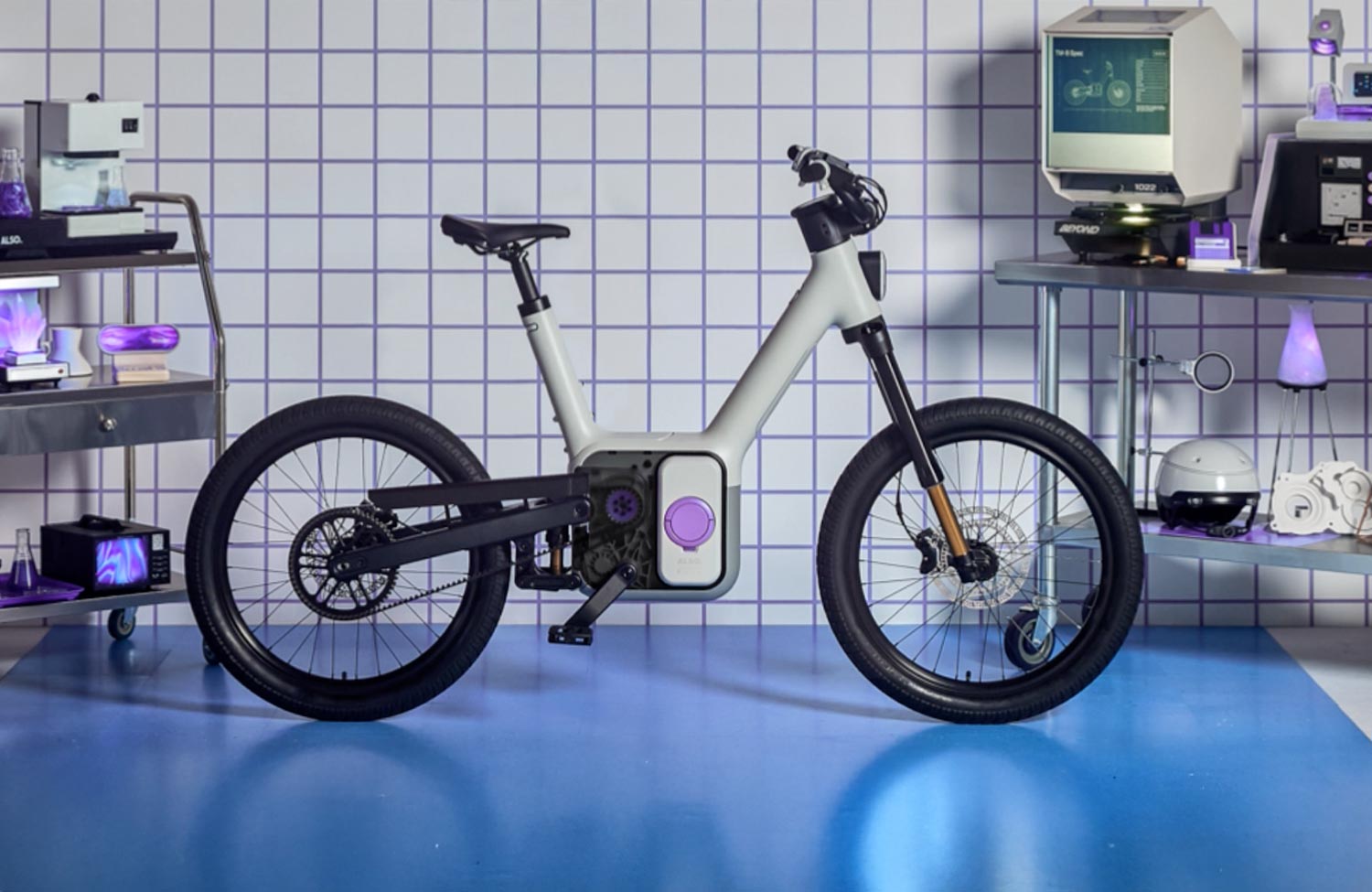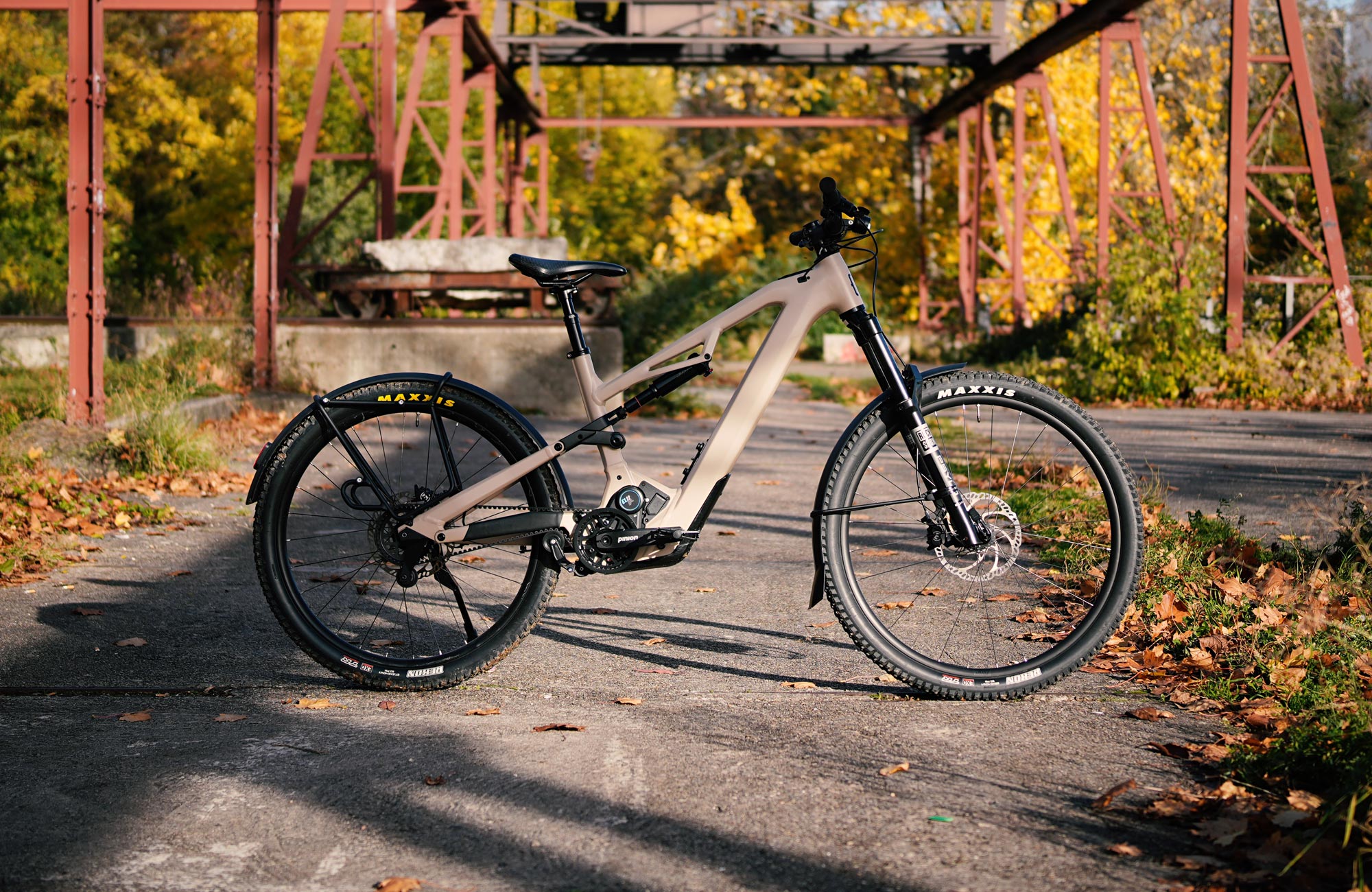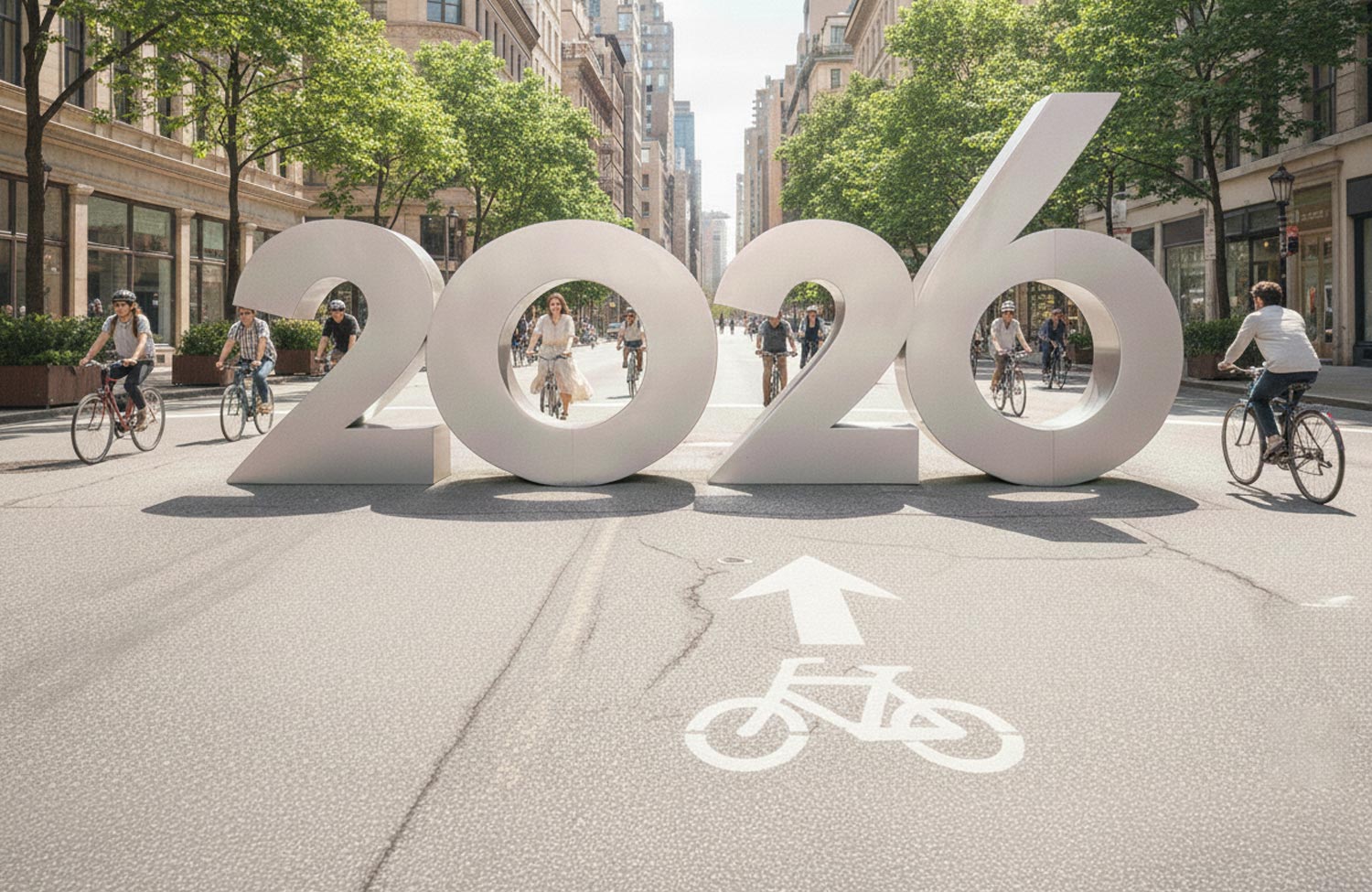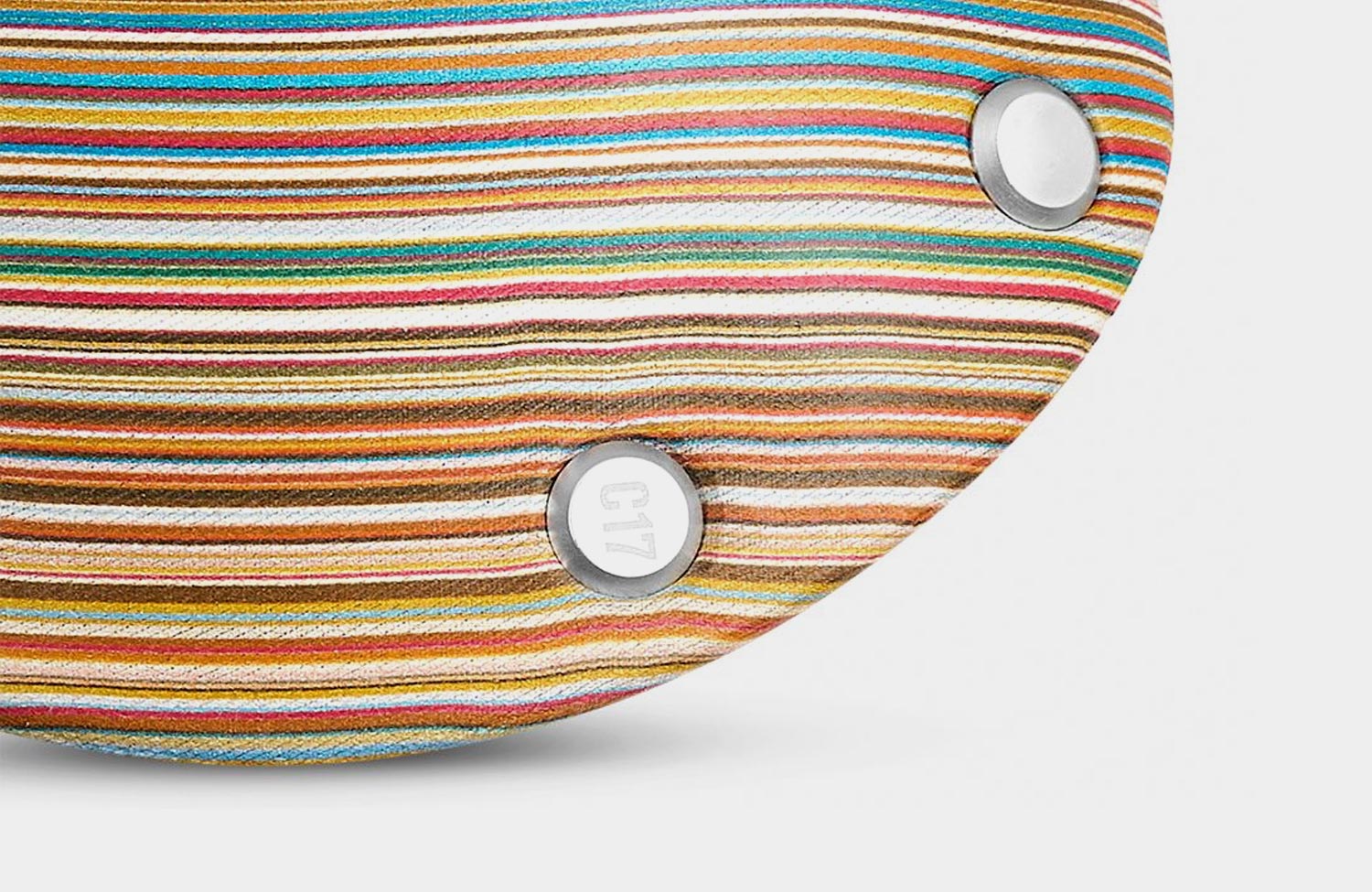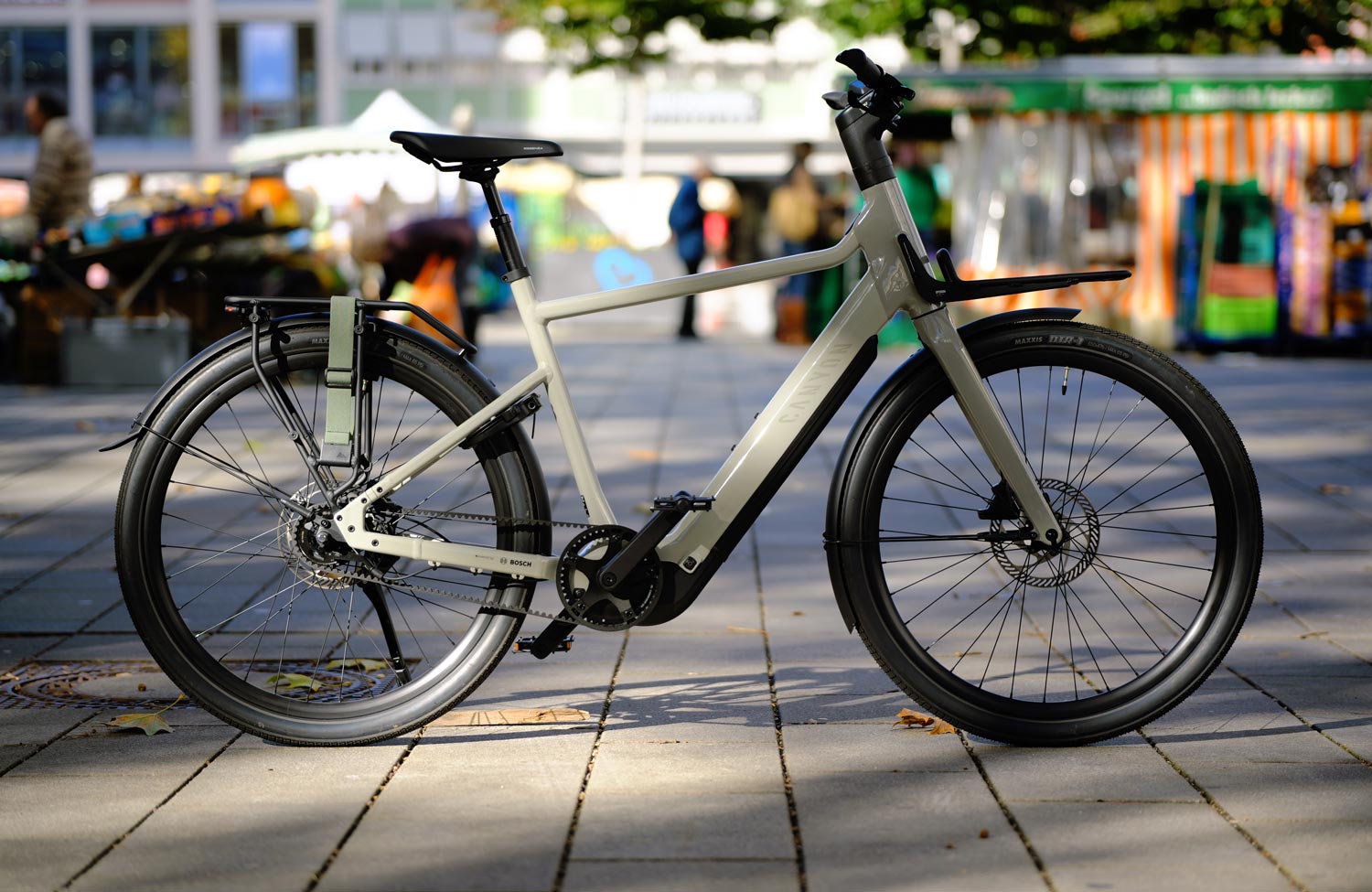When car manufacturers suddenly discover bicycles, caution is advised. All too often, their foray into the world of two-wheelers is merely a form of greenwashing, sometimes involving a standard model that has been carelessly relabelled – or an overly ambitious design study that never goes into production.
However, electric car manufacturer Rivian seems to have more substance this time around. In order to seriously address the issue of micro-mobility, the company has founded its own brand, ALSO. This brand is dedicated entirely to small electric vehicles – in other words, everything that is smaller, lighter and more urban than a car. Following the four-wheeled quad concept of a light vehicle called TM-Q, the TM-B is now the brand’s first e-bike.
The fact that the bike is actually available to order gives us hope that Rivian and ALSO have more in mind when it comes to bicycles than just a mere sustainability statement. And instead of simply copying what is already commonplace, ALSO is refreshingly redefining the e-bike in its own way: modular, digital and almost automotive in design.
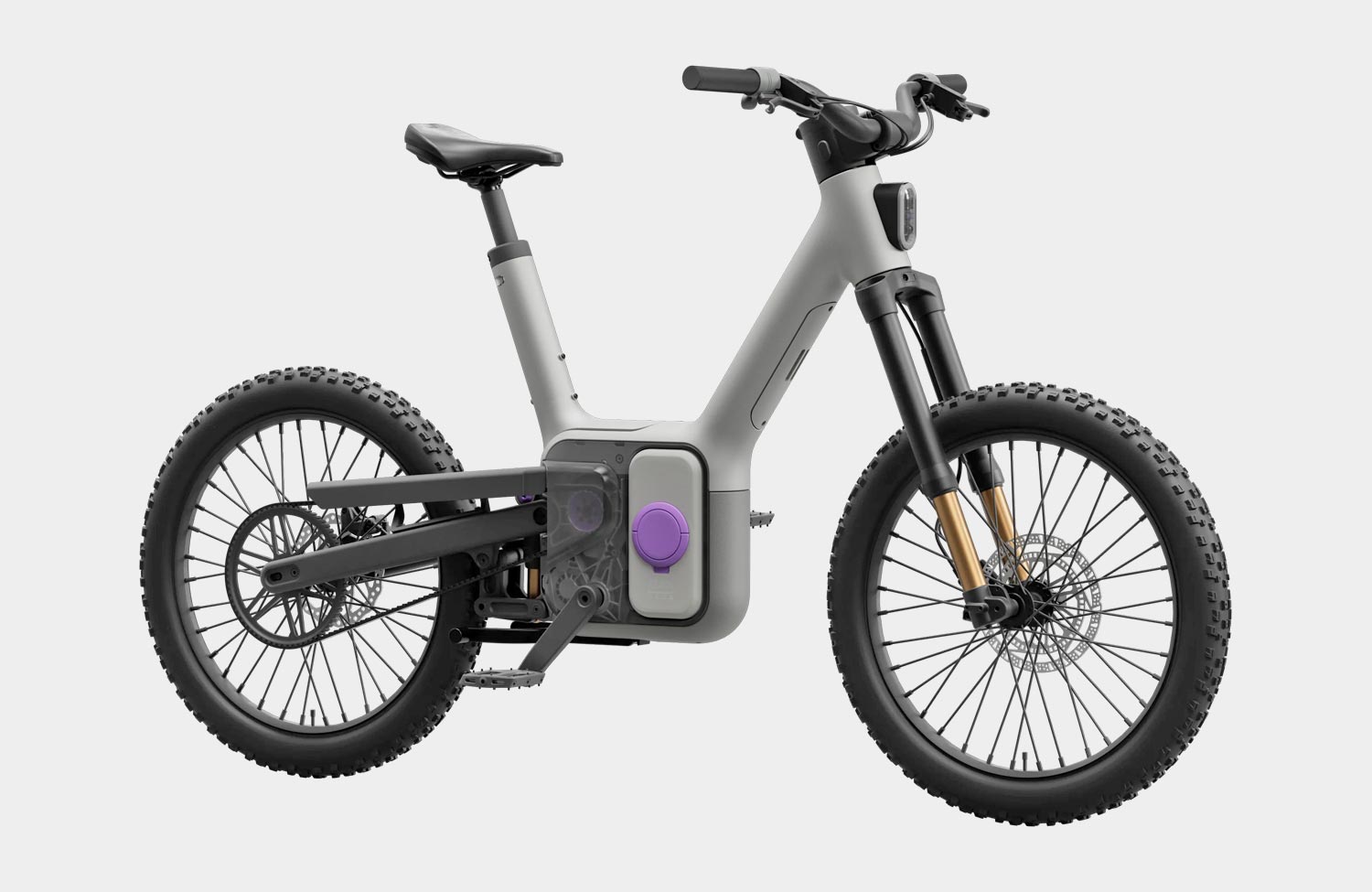
From touring to cargo: modular frame concept
This starts with the frame concept, or more precisely, the seat. The TM-B has an interchangeable seat tube system in which the seat post and seat form a single unit and can be completely removed. There are three modules to choose from: a classic saddle for sporty tours, an extended seat in the style of a moped, and a combination of seat and luggage rack that turns the bike into a practical transport solution. This modular principle gives the TM-B amazing versatility – from urban commuter to leisure vehicle.
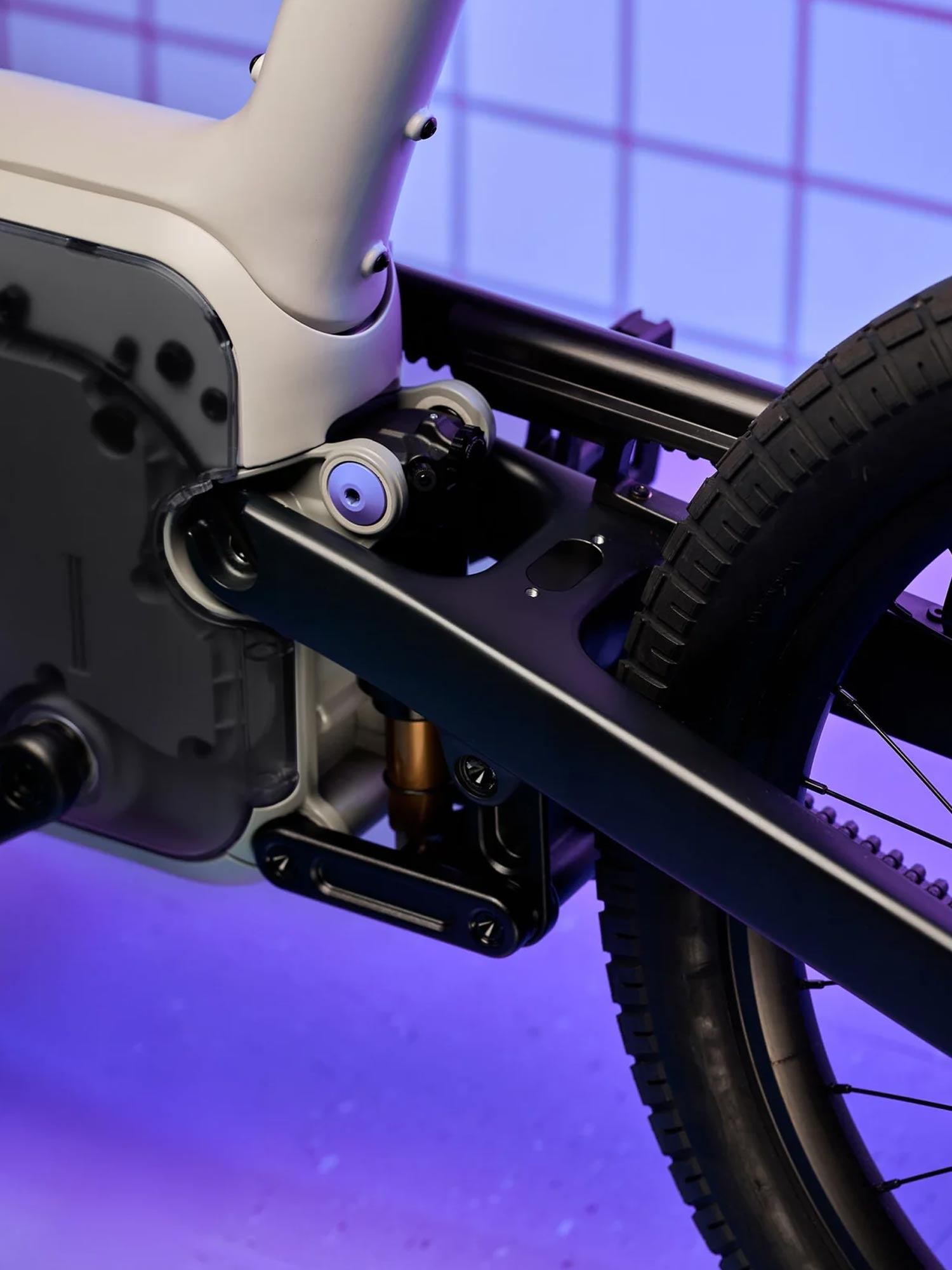

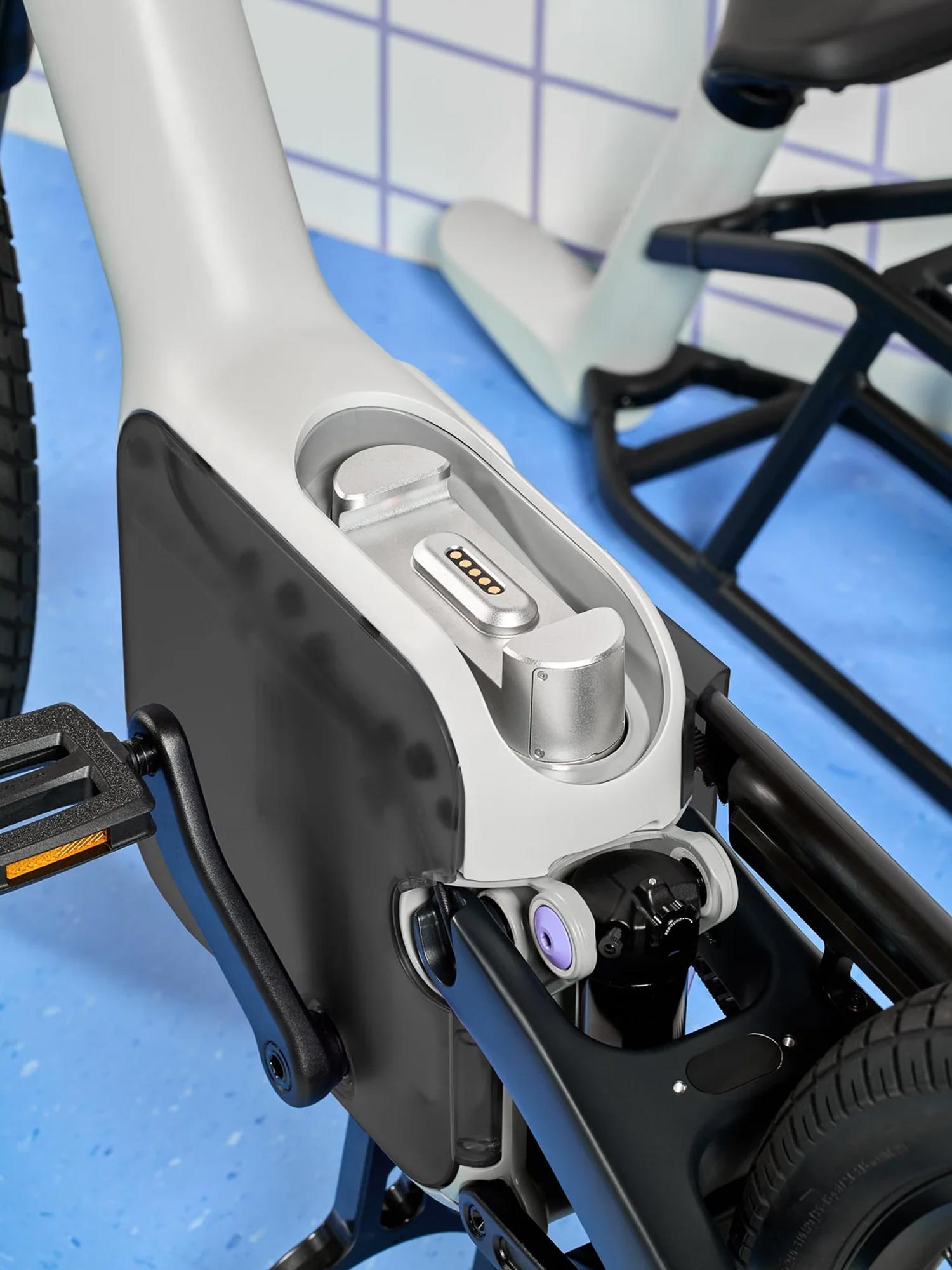
For a comfortable ride, the bike has full suspension with 120 mm of travel at the front and rear. And depending on the intended use, you can choose between rugged off-road tyres or fast tyres for urban terrain.
The battery is also designed for flexibility. It can be removed, charged via USB-C with up to 240 W and can also serve as a power bank. ALSO does not provide exact technical data, but mentions two versions: a smaller one with a range of up to 60 miles (around 95 km) and a larger one with a range of 100 miles (around 160 km). This makes the TM-B ideal for commuters who need to charge daily as well as drivers who plan longer trips – without having to rely on cumbersome chargers.
Electric drive reimagined
Perhaps ALSO’s greatest leap forward in innovation is its drive system, which goes by the name of DreamRide. There is no direct mechanical connection between the pedal crank and the rear wheel. Instead, the pedal movement is converted into electrical energy by a generator. Software analyses how hard or gently the rider is pedalling and controls a separate motor that drives the rear wheel via a Gates toothed belt. The result is said to be an extraordinary riding experience – quiet, smooth and intuitive – almost like a fusion of cycling and e-scooter. According to ALSO, DreamRide adapts the riding behaviour individually and offers an ‘experience that is determined by the rider, not the road’.
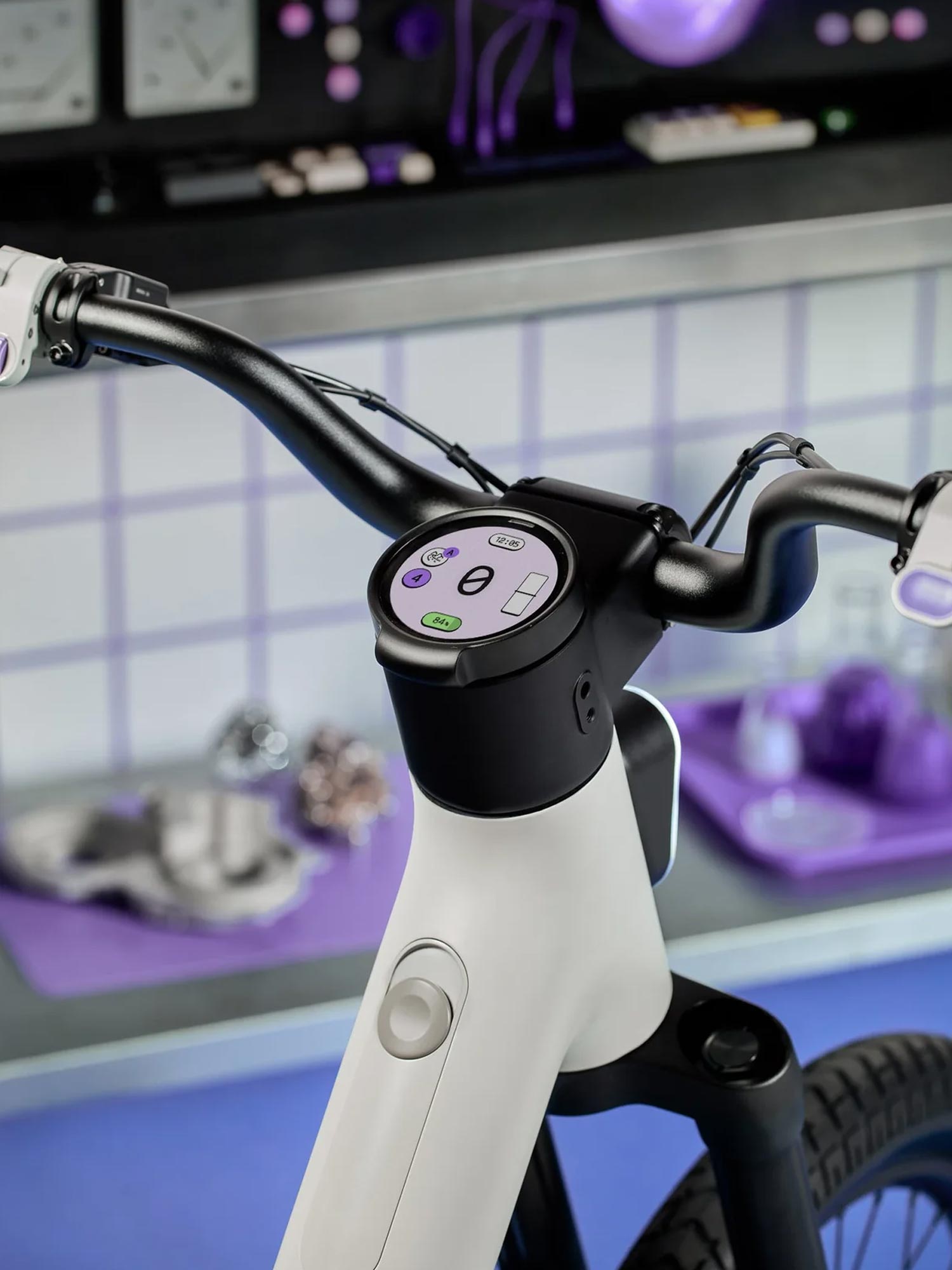
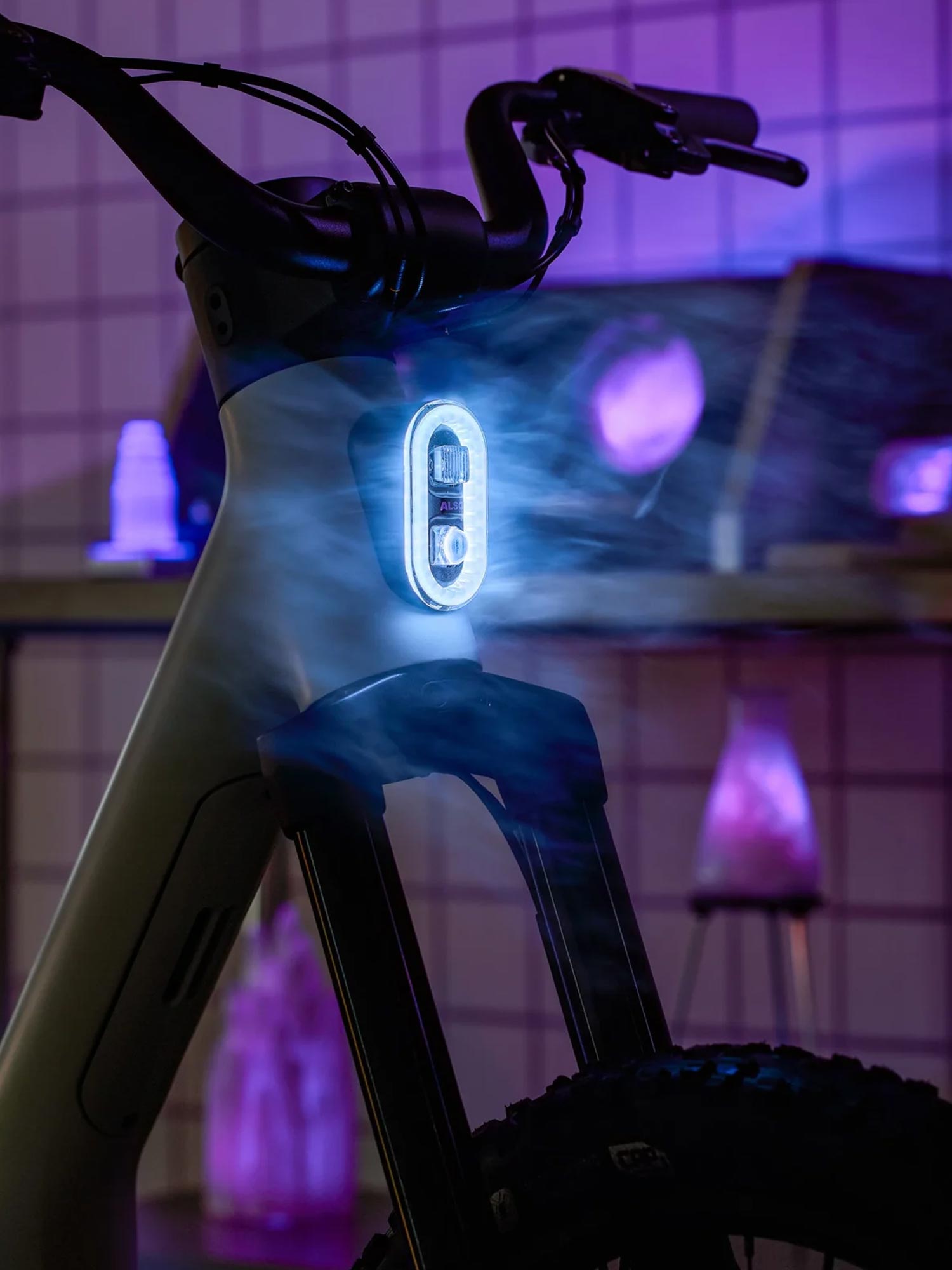
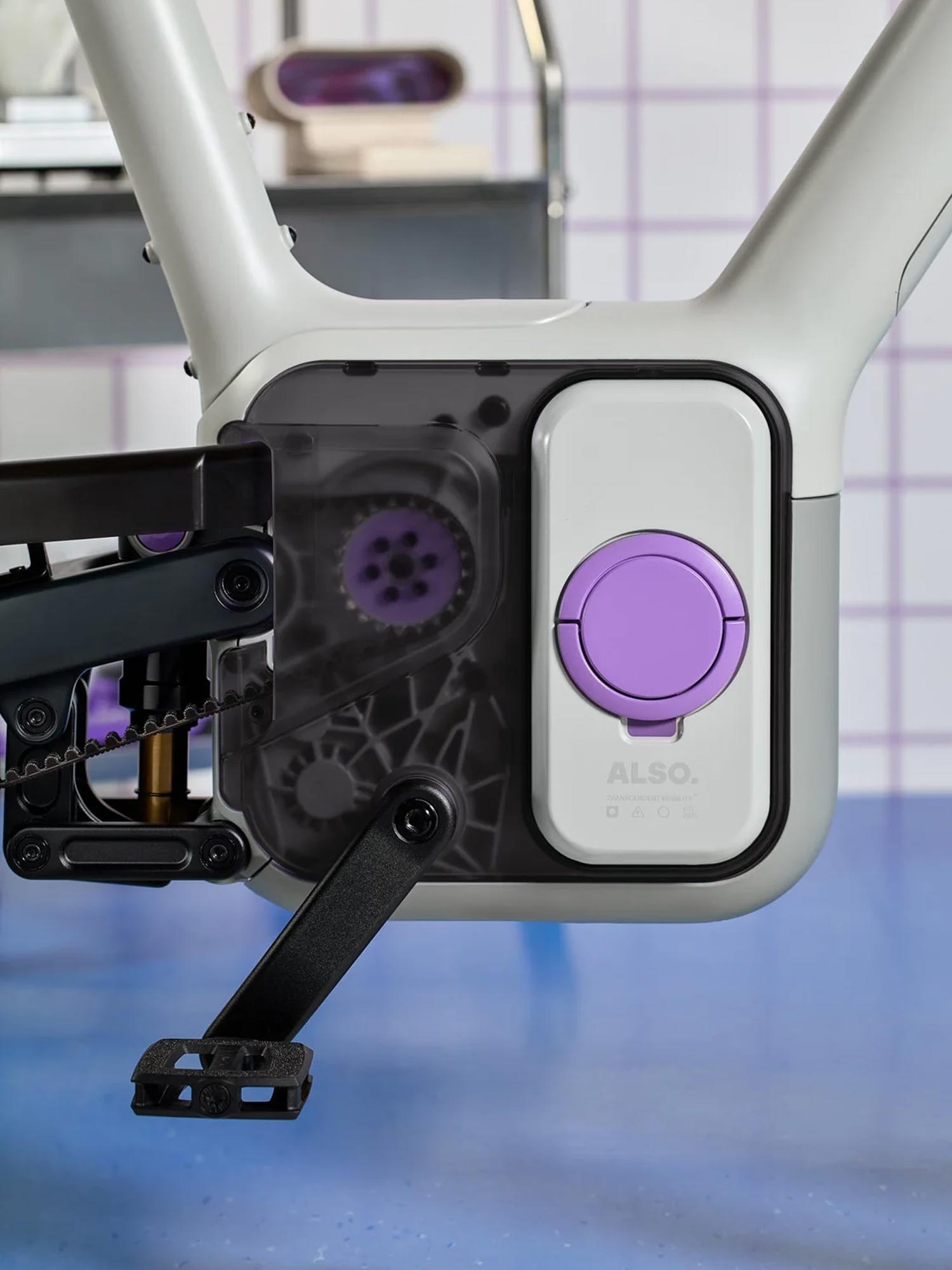
Fully connected
The handlebars feature a round, high-resolution touch display that shows all important data – speed, battery status, navigation instructions and system updates. Thanks to GPS tracking, an alarm function and over-the-air updates, the TM-B is fully connected. An accompanying app allows you to locate, diagnose and adjust riding profiles. Of course, the lighting system and indicators are also integrated directly into the bike – no additional parts, but part of the design.
With a price tag of around €4,500 for the first Launch Edition, ALSO is positioning the TM-B in the upper premium segment. Delivery is scheduled to begin in spring 2026, but the bike is currently only available to order in North America. The price of the later series model is likely to be slightly lower, and it is expected to be available towards the end of 2026. Whether the bikes will also be available in Europe at some point remains questionable for the time being – especially since the electric drive is more like a ‘bike-by-wire’ system and deviates from common standards in the EU.

